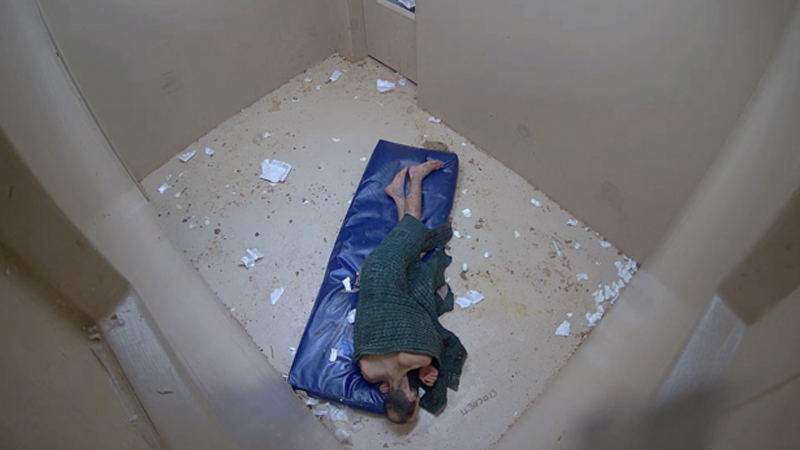Joshua McLemore, 29, died in custody after spending 20 days in solitary confinement in the Jackson County Jail, according to the estate’s lawsuit against Jackson County, Indiana, as well as a number of other parties, including the sheriff, jail commander, and medical staff.
Additionally being sued is Advanced Correctional Healthcare, Inc., a Tennessee-based private company that works with 370 other jails around the country in addition to Jackson County Jail to provide healthcare services.
According to the lawsuit, McLemore’s death was caused by “many failures” on the part of Jackson County Prison staff members as well as “systemic flaws” within the facility. The complaint claimed that “His disease was treatable and his death was avoidable.”
McLemore allegedly pulled a nurse’s hair while being treated at the Schneck Medical Center in Seymour, Indiana for a mental health crisis, according to the lawsuit. He was taken straight to jail from the hospital. As McLemore was brought to the prison, his estate claims that jail staff failed to “perform any of the standard book-in processes,” such as performing an intake medical or mental health screening or contacting a doctor to assess him.
He apparently received immediate placement in an undressed, padded isolation cell. The county’s own policies referred to McLemore’s solitary detention as “severe isolation,” the lawsuit claims. His active psychosis, for which he had been hospitalized, persisted, according to the lawsuit.
He was being held pending trial and had never been charged with or found guilty of a crime. Jail employees had the “opportunity to monitor Josh’s every movement and sound in real time over the next 20 days” because of a continuously running surveillance camera installed in Josh’s cell.
The lawsuit claimed that more than 400 hours of videotape depict McLemore’s “active psychosis and deteriorating state.” Videos of McLemore’s actions in his cell were part of the case. McLemore was alleged “medically observed” according to the lawsuit, but only during the first week of his detention, and routine observations were either not recorded or were not carried out.
According to the lawsuit, there was only a one-day log of McLemore’s dietary and hydration intake. According to the lawsuit, McLemore was unable to take care of himself or speak effectively due to his active psychosis. He is accused of sleeping very little and acting in ways such as smearing feces, eating food containers with Styrofoam, and rolling about in rubbish.
The lawsuit claimed that a bathroom in his cell could have been unlocked upon request, but because McLemore was unable to speak, he was unable to request that it be opened. The lawsuit also claimed that McLemore ate food tainted by his own waste and stepped on it, which should have worried jail staff.
According to the lawsuit, “Relatively little of the food Josh received made it into his mouth.” Instead, urine, excrement, and bits of paper and Styrofoam that he tore from the food containers ended up being scattered around the floor of his cell.
According to the lawsuit, McLemore lost close to 45 pounds while he was incarcerated for three weeks. He was taken to a nearby hospital on August 8, 2021, before being flown by helicopter to a bigger hospital in Cincinnati, where he passed away two days later. His cause of death was described in the lawsuit as “multiple organ failure due to refusal to eat or drink with the altered mental condition due to untreated schizophrenia,” according to the lawsuit.
Indiana State Police conducted an investigation into McLemore’s death. McLemore “most likely died owing to a protracted lack of care by Jackson County Prison Employees as a group,” according to the county’s prosecutor, Jeffrey Chalfant.
In relation to the investigation, no one was put on trial. Chalfant’s statement was deemed “true” but “incomplete” by the complaint, which claimed that the persons mentioned in the action displayed “deliberate disregard.” The estate of McLemore is asking for both compensatory and punitive damages and is demanding a jury trial.
According to local media outlet The Indianapolis Star, Advanced Correctional Healthcare’s president and chief executive Jessica Young stated that patient information could not be disclosed due to privacy and confidentiality rules.



